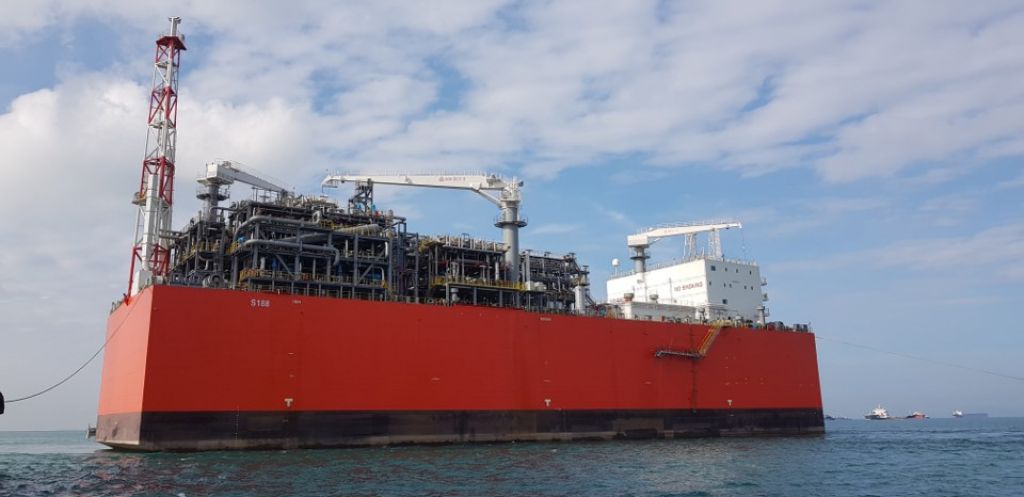Preparations for the installation of an LNG import terminal at Eemshaven are progressing rapidly. Today sees the start of the tendering procedure for market parties interested in transporting LNG from Eemshaven into the European hinterland. Currently still moored in Singapore, the floating LNG plant will set off on its journey to the Netherlands in May and is expected to arrive at Eemshaven in early August.

According to Ulco Vermeulen, member of Gasunie’s Executive Board, several key steps have now been taken. ‘We will now enter further negotiations with potential customers. They will be the ones who will be using our terminal in the near future, initially for LNG, and later for green hydrogen. We will be operating it under the name EemsEnergyTerminal.’
Prior to shipping, natural gas is prepped for the journey by liquefying it. Upon arrival, it has to be returned to a gaseous state so that it can be transported through the Dutch gas network. Structures will be built at Eemshaven where the S188 floating LNG plant from Belgian firm Exmar, can moor. After mooring, the liquefied gas is converted back to a gaseous state, thus readying it for transport in the Dutch pipeline network. The floating LNG plant makes it possible to transport liquefied natural gas by sea to Eemshaven, where it is subsequently converted to a gaseous state again.
EemsEnergyTerminal
Private-sector parties that buy LNG gas can use the new floating terminal to take liquefied natural gas to the Netherlands as early as this winter. Gasunie will take care of connecting Eemshaven to the nationwide gas pipeline network and distributing the gas across the Netherlands. A permanent terminal will be built at a later stage. In the future, the new terminal can be used to store green hydrogen. Hydrogen is a focal point in Gasunie’s strategy and a mainstay of the northern Netherlands’ future economic development.
Ramping up LNG imports
In mid-March this year, the Dutch Minister for Climate and Energy Policy, Rob Jetten, announced that the Dutch government and Gasunie are jointly exploring ways to ramp up the Netherlands’ LNG import capacity in the short term. LNG imports can help reduce dependency on Russian gas. Gasunie has been in intensive talks about this with the government for some time now. Besides Eemshaven, the existing Gate terminal at Rotterdam’s Maasvlakte will also be optimised to increase LNG processing capacity. Together, Eemshaven and Rotterdam will then be able to double the Netherlands’ LNG capacity.